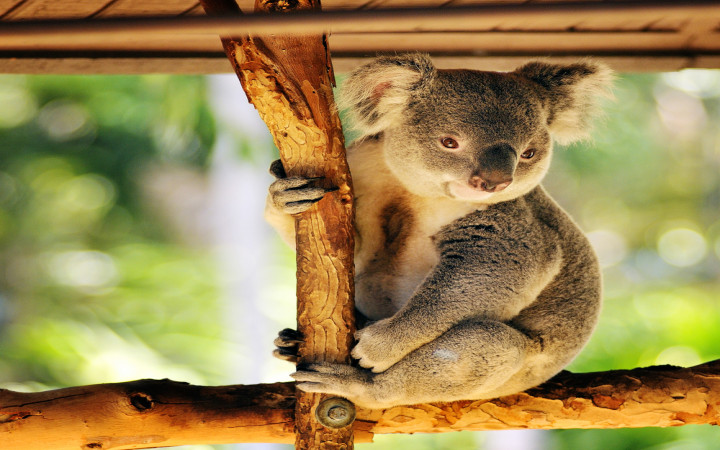Do you have a favorite stuffed animal? Perhaps a teddy bear? Wouldn't it be great if that warm, furry stuffed animal was alive and could cuddle and play with you?
That's exactly what many kids think of when they see a certain adorable Australian animal. What are we talking about? Koalas, of course!
Koalas are often called koala “bears," because they look a bit like small bears. However, koalas aren't bears at all. They're actually marsupials, like kangaroos.
Like kangaroos, koalas have pouches where their babies develop. Newborn koalas — called joeys — are only about the size of a jelly bean! They're born blind, hairless and without ears.
The mother will carry her joey in her pouch for about six months. After that time, the joey will be old enough to come out of the pouch and ride on its mother's back.
Koalas live in the plentiful eucalyptus trees of eastern Australia. They are good climbers that can easily leap from one treetop to another. Their sharp claws allow them to hold on tight to branches while they sleep.
Eucalyptus leaves are the main source of food — and water — for koalas. Most koalas will eat over two pounds of eucalyptus leaves each day.
Eucalyptus leaves and their oils contain toxins that will make most animals sick if they eat them. Koalas, however, have special digestive systems that allow them to break down the tough leaves and filter out the toxins.
This digestive process takes time and energy, though. This leads most koalas to feed at night and sleep up to 16 or more hours each day. Koalas may appear to be lazy, sleeping in eucalyptus trees all day, but they're actually getting the rest their bodies need to digest their food!
Koalas weigh about 20-30 pounds on average and grow to be around two feet tall. Their round, plump appearance, combined with their soft, fuzzy fur, gives them their cuddly, bear-like appearance.
There used to be millions of koalas. In the 1920s, though, koalas were hunted for their fur. Today, koalas are protected in Australia, but they still face threats from dogs, automobile traffic, and destruction of their eucalyptus forests. Researchers estimate there are about 100,000 koalas alive today.




